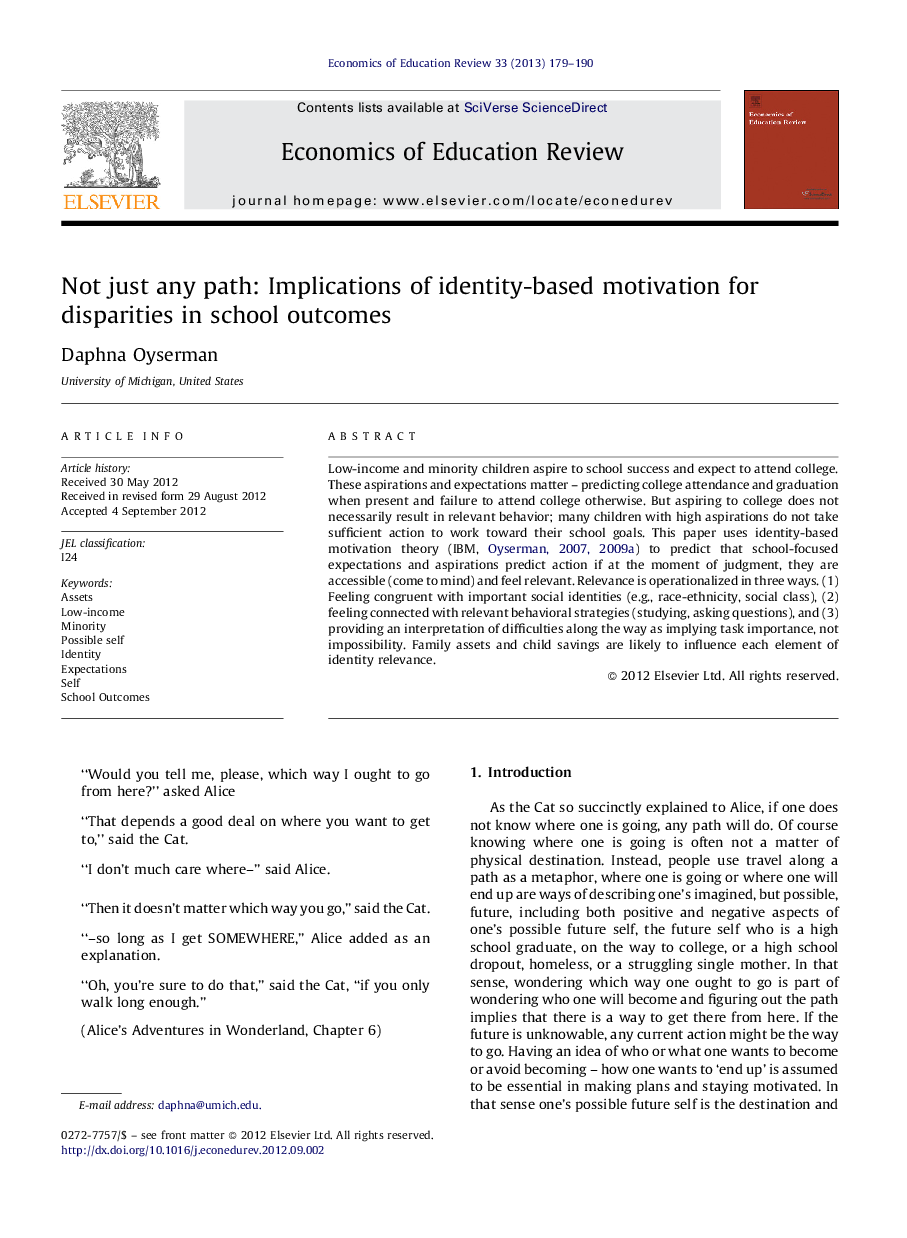| Article ID | Journal | Published Year | Pages | File Type |
|---|---|---|---|---|
| 354338 | Economics of Education Review | 2013 | 12 Pages |
Low-income and minority children aspire to school success and expect to attend college. These aspirations and expectations matter – predicting college attendance and graduation when present and failure to attend college otherwise. But aspiring to college does not necessarily result in relevant behavior; many children with high aspirations do not take sufficient action to work toward their school goals. This paper uses identity-based motivation theory (IBM, Oyserman, 2007 and Oyserman, 2009a) to predict that school-focused expectations and aspirations predict action if at the moment of judgment, they are accessible (come to mind) and feel relevant. Relevance is operationalized in three ways. (1) Feeling congruent with important social identities (e.g., race-ethnicity, social class), (2) feeling connected with relevant behavioral strategies (studying, asking questions), and (3) providing an interpretation of difficulties along the way as implying task importance, not impossibility. Family assets and child savings are likely to influence each element of identity relevance.
► Low-income minority children aspire to school success and college. ► These school-success possible identities predict grades and college attendance. ► But only if school identities are accessible and feel relevant. ► Family assets and savings can make this happen.
